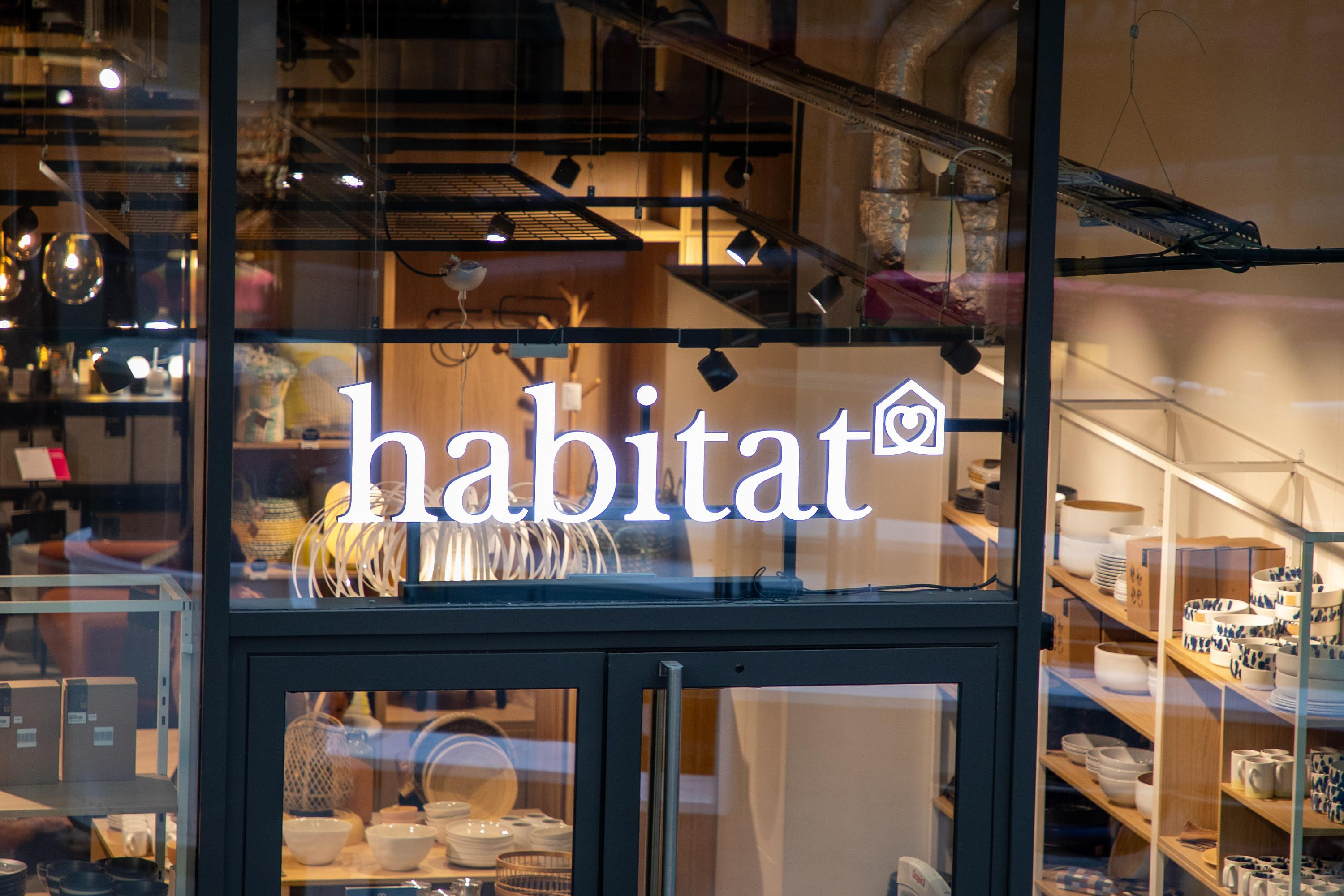Antibiotic resistance, climate change, integration, ageing populations, artificial intelligence... We live in a time of major societal challenges, where the future of humanity is dependent on our present decisions are based in research and science. The challenges is all the more complex our lexicon lately been enriched with expressions that faktaresistens, postsanning and alternative facts. Now more than ever, we need researchers to make their voices heard in the public sphere in order to contribute with scientifically researched knowledge to support decision-making at all levels.
Here, researchers can turn directly to different target audiences, such as politicians, authorities or the general public. The visibility affects the image of research and its role in society, and can lead to research can better impact. Visibility may also promote public support for universities and colleges, and is therefore important for both researchers and their employers.
the Logic should also mean that the content of the page to change, if the other categories of writers and disciplines addresses the discussion page with posts that correspond to your editorial requirements.
By participating in the debate, researchers can expand on, and clarify, for example, how political proposals or social phenomena relate to scientific facts. It can apply to everything from the security policy, teaching, integration, physical and mental health, to history, climate and economy. Individuals can receive help to make informed decisions in everyday life. From a societal perspective, it may lead to citizens in a higher degree, are driving the development of a positive, knowledge-based direction, in which opinions and propaganda, not to be confused with the facts. The question of what the researchers and topics that are visible in public debates is therefore interesting.
the DN Debate has long been a leading arena for the public debate in Sweden.
”just As the children debate the most. Researchers ' participation in the DN Debate 1992-2015” , released today, presents the results of a systematic quantitative content analysis of the researchers and topics that are on DN Debate . This report shows which researchers are given the space, what issues they take up and what they turn to.
We would like to highlight three results that we believe are problematic and which we hope will lead to reflection and action of the Swedish researchers and debattredaktörer:
One of the most striking results is that 80 per cent of the scientists who signed the debattartiklarna are men. The largest is the male dominance in the engineering sciences. The proportion of women is highest in articles relating to the humanities, the natural sciences and the faculty of educational sciences, but even here, the men are in the majority. Men are also more likely than women ensamförfattare to their articles.
Although the men dominate in media content in general, their dominance is even greater in the DN Debate. Likely hangs there partially together with the professors, which is the most common sender, is a male-dominated group. The prevailing power structures within the academy and society at large is reflected thus on DN Debate. The distribution between men and women among professors in Sweden has levelled out somewhat over time (from 17% to 27% between 2006 and 2016) and we see that the proportion of women increases over the time even on DN Debate.
During the period 1992-1997, the share of female authors just 14 per cent, compared with 33% in the years 2010-2015. But still, the male dominance is very large.
Two areas of research dominate among the postings on DN Debate: social sciences, which occupies two-thirds of the total number of articles, and the medicine which accounts for almost a fifth.
Other areas are far behind, in terms of its share of the published papers: the faculty of educational sciences 4% environmental sciences 4% humanities 3% science 2% technology 2%.
Among the authors with ties to a university is the whole of the 70 per cent related to one of the five largest: Göteborg university, Lund university, Stockholm university, Uppsala university and Karolinska institutet.
. Researchers who want to publish an op-ed need to take into account the editorial requirements of the submitted texts, including with regard to novelty, language and structure. The results are therefore strongly colored by medielogiken and editorial nyhetsvärdering and can't see as an absolute measure of scientists ' willingness and ability to participate in public debate.
at the same time, DN is Debate an important national arena where the post can affect the individuals ' opinions and advocacy in a wide range of political and nonpolitical issues. Against the background of this is the imbalance to be problematic. On a central arena for public discourse that DN Debate, it is important that a diversity of voices can make themselves heard.
A page with articles about social issues, written by male professors at big universities, the draws according to this logic to more articles in the same category. The logic should also mean that the content of the page to change, if the other categories of writers and disciplines addresses the discussion page with posts that correspond to your editorial requirements.
we would Therefore like to encourage female researchers and scholars from smaller universities around the country to a greater extent into the public debate. With scientific perspectives on the important issues you can contribute with fact-based positions, and documentation for individuals as well as for all sectors of society.

 B:SM will break its investment record this year with 62 million euros
B:SM will break its investment record this year with 62 million euros War in Ukraine: when kyiv attacks Russia with inflatable balloons loaded with explosives
War in Ukraine: when kyiv attacks Russia with inflatable balloons loaded with explosives United States: divided on the question of presidential immunity, the Supreme Court offers respite to Trump
United States: divided on the question of presidential immunity, the Supreme Court offers respite to Trump Maurizio Molinari: “the Scurati affair, a European injury”
Maurizio Molinari: “the Scurati affair, a European injury”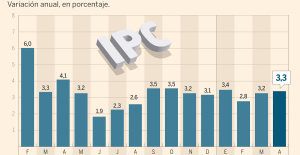 Inflation rises to 3.3% in April and core inflation moderates to 2.9%
Inflation rises to 3.3% in April and core inflation moderates to 2.9%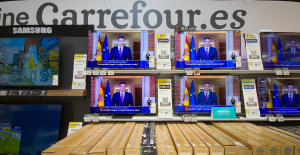 Pedro Sánchez announces that he continues "with more strength" as president of the Government
Pedro Sánchez announces that he continues "with more strength" as president of the Government Irritable bowel syndrome: the effectiveness of low-carbohydrate diets is confirmed
Irritable bowel syndrome: the effectiveness of low-carbohydrate diets is confirmed Beware of the three main sources of poisoning in children
Beware of the three main sources of poisoning in children Relief at Bercy: Moody’s does not sanction France
Relief at Bercy: Moody’s does not sanction France More than 10 million holders, 100 billion euros: the Retirement Savings Plan is a hit
More than 10 million holders, 100 billion euros: the Retirement Savings Plan is a hit Paris 2024 Olympic Games: the extension of line 14 will open “at the end of June”, confirms Valérie Pécresse
Paris 2024 Olympic Games: the extension of line 14 will open “at the end of June”, confirms Valérie Pécresse Failing ventilators: Philips to pay $1.1 billion after complaints in the United States
Failing ventilators: Philips to pay $1.1 billion after complaints in the United States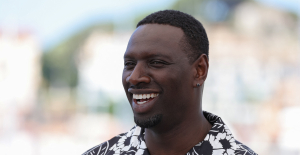 The Cannes Film Festival welcomes Omar Sy, Eva Green and Kore-Eda to its jury
The Cannes Film Festival welcomes Omar Sy, Eva Green and Kore-Eda to its jury Prisoner in Israel, a Palestinian receives the International Prize for Arab Fiction
Prisoner in Israel, a Palestinian receives the International Prize for Arab Fiction Harvey Weinstein, the former American producer hospitalized in New York
Harvey Weinstein, the former American producer hospitalized in New York New success for Zendaya, tops the North American box office with Challengers
New success for Zendaya, tops the North American box office with Challengers Skoda Kodiaq 2024: a 'beast' plug-in hybrid SUV
Skoda Kodiaq 2024: a 'beast' plug-in hybrid SUV Tesla launches a new Model Y with 600 km of autonomy at a "more accessible price"
Tesla launches a new Model Y with 600 km of autonomy at a "more accessible price" The 10 best-selling cars in March 2024 in Spain: sales fall due to Easter
The 10 best-selling cars in March 2024 in Spain: sales fall due to Easter A private jet company buys more than 100 flying cars
A private jet company buys more than 100 flying cars This is how housing prices have changed in Spain in the last decade
This is how housing prices have changed in Spain in the last decade The home mortgage firm drops 10% in January and interest soars to 3.46%
The home mortgage firm drops 10% in January and interest soars to 3.46% The jewel of the Rocío de Nagüeles urbanization: a dream villa in Marbella
The jewel of the Rocío de Nagüeles urbanization: a dream villa in Marbella Rental prices grow by 7.3% in February: where does it go up and where does it go down?
Rental prices grow by 7.3% in February: where does it go up and where does it go down? Europeans: a senior official on the National Rally list
Europeans: a senior official on the National Rally list Blockade of Sciences Po: the right denounces a “drift”, the government charges the rebels
Blockade of Sciences Po: the right denounces a “drift”, the government charges the rebels Even on a mission for NATO, the Charles-de-Gaulle remains under French control, Lecornu responds to Mélenchon
Even on a mission for NATO, the Charles-de-Gaulle remains under French control, Lecornu responds to Mélenchon “Deadly Europe”, “economic decline”, immigration… What to remember from Emmanuel Macron’s speech at the Sorbonne
“Deadly Europe”, “economic decline”, immigration… What to remember from Emmanuel Macron’s speech at the Sorbonne These French cities that will boycott the World Cup in Qatar
These French cities that will boycott the World Cup in Qatar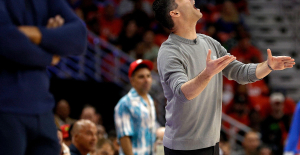 NBA: young Thunder coach Mark Daigneault named coach of the year
NBA: young Thunder coach Mark Daigneault named coach of the year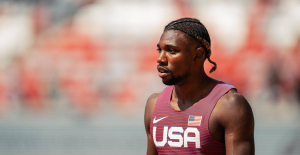 Athletics: Noah Lyles in legs in Bermuda
Athletics: Noah Lyles in legs in Bermuda Serie A: Dumfries celebrates Inter Milan title with humiliating sign towards Hernandez
Serie A: Dumfries celebrates Inter Milan title with humiliating sign towards Hernandez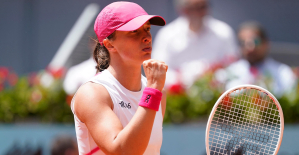 Tennis: no pity for Sorribes, Swiatek is in the quarterfinals in Madrid
Tennis: no pity for Sorribes, Swiatek is in the quarterfinals in Madrid







